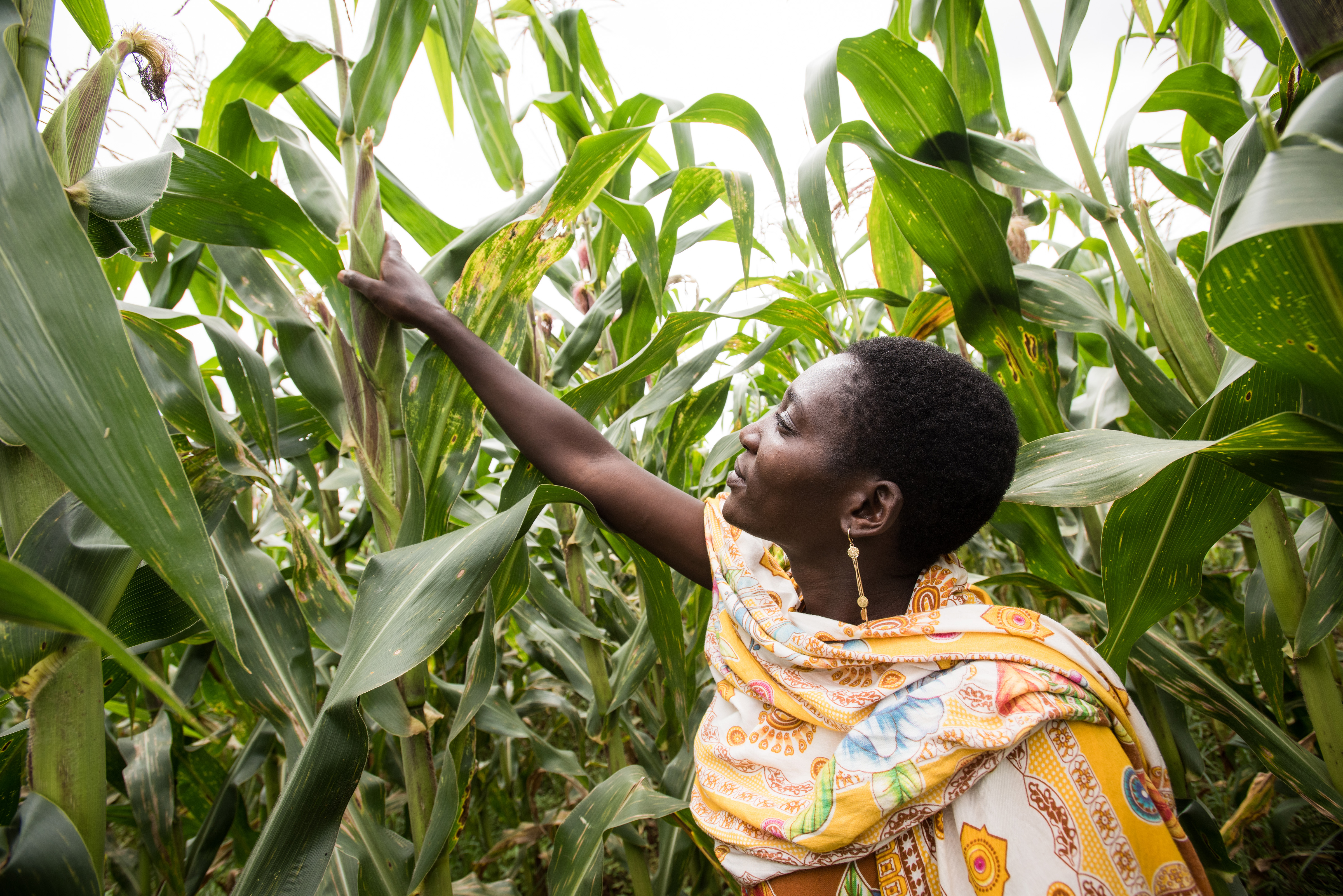Surpasses initial $3 billion goal set by DFC and peer DFIs
With help from One Acre Fund, a DFC-supported business under the 2X Challenge, Tulalumba Luvinga tripled her harvest, using her profits to start a small business and support the education of her children.
WASHINGTON – U.S. International Development Finance Corporation (DFC) and peer development finance institutions (DFIs) across the globe—the members of the 2X Challenge—today announced that they have catalyzed more than $4.5 billion of investment in the world’s women, far surpassing the initiative’s initial goal of $3 billion by the end of 2020. The milestone marks the culmination of two years of unprecedented collaboration among member DFIs, which together have helped unlock enormous untapped potential in developing countries while setting a global standard for investing in women.
“DFC is exceptionally proud to have contributed to this achievement, which underscores the power of joint action in addressing global gender inequality,” said DFC Managing Director for Global Women’s Issues Charity Wallace. “And yet, our work is far from over. DFC will continue to collaborate with its 2X Challenge counterparts to drive new progress toward shared goals. These efforts will be even more important in the wake of COVID-19, which has exacerbated the challenges facing women around the world.”
DFC’s investments under the 2X Challenge span Africa, Latin America, the Indo-Pacific, and emerging markets across the globe. Some of these investments include:
- Supporting female farmers across Africa: A $10 million loan to One Acre Fund is helping smallholder farmers—especially women—access seeds, fertilizer, and training on credit so they can improve yields, reach formal markets, and strengthen food security in Kenya, Rwanda, Malawi, and other African countries.
- Advancing financial inclusion in Ecuador: $100 million in financing is enabling Banco Pichincha to expand lending to women-owned and -led micro, small, and medium enterprises (MSMEs) in Ecuador, where women own just 14 percent of MSMEs due to challenges including limited access to credit. 100 percent of loan proceeds will go to women.
- Empowering women through clean water in the Indo-Pacific: A $20 million loan to WaterEquity is financing access to clean water and sanitation for underserved individuals—particularly women—in Cambodia, India, Indonesia, and the Philippines. The project will address a critical barrier to greater women’s economic participation by reducing the time they often spend collecting water for their families in developing countries.
Inspired by DFC’s 2X Women’s Initiative—which supports the Administration’s broader Women’s Global Development and Prosperity (W-GDP) Initiative—the 2X Challenge was launched in June 2018 by the G7 DFIs to mobilize significant private capital to projects that empower women in developing countries. Since the launch of the 2X Challenge, founding G7 DFIs have welcomed counterparts representing Belgium, Denmark, Finland, the Netherlands, Sweden, and Switzerland.
Investments under the 2X Challenge are measured against the 2X Criteria, metrics developed by the initiative’s members to measure the extent to which investments support women as entrepreneurs, business leaders, employees, and consumers. The 2X Criteria have since been adopted by financial institutions across the globe.
Read the full statement issued by the 2X Challenge working group on the initiative’s achievements to date.
###
U.S. International Development Finance Corporation (DFC) is America’s development bank. DFC partners with the private sector to finance solutions to the most critical challenges facing the developing world today. We invest across sectors including energy, healthcare, critical infrastructure, and technology. DFC also provides financing for small businesses and women entrepreneurs in order to create jobs in emerging markets. DFC investments adhere to high standards and respect the environment, human rights, and worker rights.

